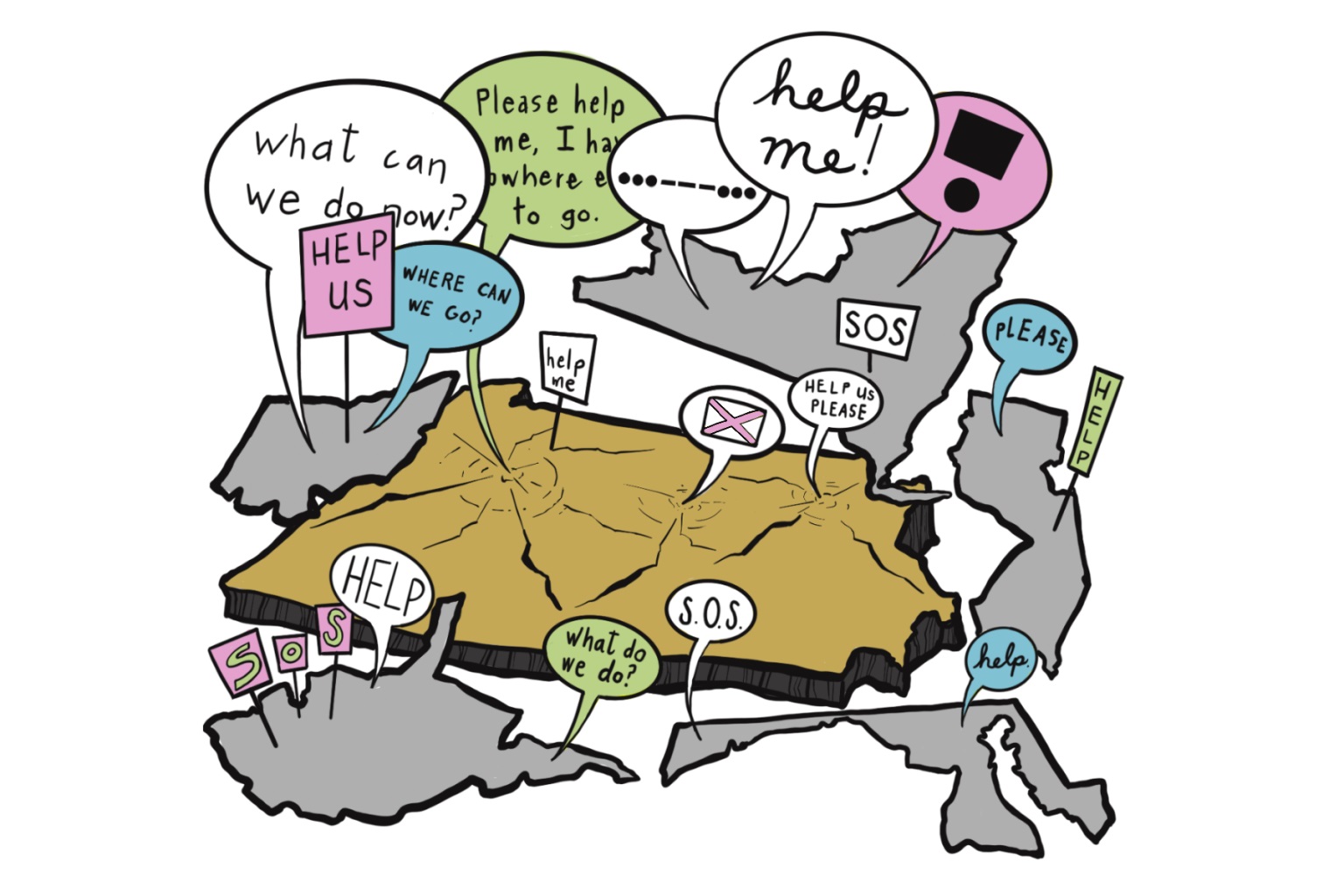(Illustration by Andrea Shockling/PublicSource)
The panic of a year ago has subsided, but as more states restrict or ban abortion, clinics expect further uncertainty.
by
Immediately, the phones were ringing off the hook. Hundreds of desperate patients left voicemail messages from their homes, their cars, even from clinics in other states where they had just learned they could not receive the care they were promised. Where could they get an abortion now? How would they get there? How would they pay for it? Could they get their money back for the abortion services they’d paid for but wouldn’t receive?

This story is a part of Selves, a newsletter about gender and identity by PublicSource.
Sign up today.
That was the situation at Allegheny Reproductive Health Center last June, where the wait time just to get a return call was three to four business days as the clinic saw its client load double, and then triple, according to CEO Sheila Ramgopal.
The days immediately following the Supreme Court’s Dobbs v. Jackson Women’s Health Organization decision, which overturned Roe v. Wade, were “like a total shit show” for Western Pennsylvania abortion providers, Ramgopal said.
The call volumes have since slowed down, but the number of out-of-state abortion patients in the region remains heightened at Allegheny Reproductive as well as Planned Parenthood of Western Pennsylvania, the only other abortion clinic on this side of the state. Clinics have been forced to adapt, largely by expanding their funding and staffing, to accommodate the demand.
The Dobbs decision struck down half-century-old constitutional abortion protections across the country, allowing state legislatures to restrict abortion access. One year later, 14 states have completely banned elective abortions, with six more banning abortion after 20 weeks of pregnancy or less.

West Virginia banned abortion with very few exceptions in September. Adult victims of rape or incest can acquire an abortion until eight weeks gestation, while victims under 18 have until 14 weeks, though all such victims must report to law enforcement authorities 48 hours beforehand. The ban also includes exemptions for medical emergencies.
The ban also requires these abortions to be performed by a physician at a hospital, putting an end to nearly 50 years of abortion services at the Women’s Health Center of West Virginia, the state’s only abortion clinic. While the Charleston-based clinic cannot provide abortion services, it continues to refer patients to resources and funds that will help them get an abortion out-of-state — including a lot of patients that end up traveling to Pittsburgh.
“West Virginians are still calling us asking where they could get abortion care,” said Katie Quinonez, executive director of the Women’s Health Center. “Just because abortion was banned within our state borders does not mean that the need for abortion stops whatsoever.”

